Blur, Kendrick Lamar and Rosalía shine at Barcelona Festival
Blur, New Order, Kendrick Lamar, and Rosalía headlined the Barcelona’s 21st edition at the Parc del Fòrum
By Selim Bulut
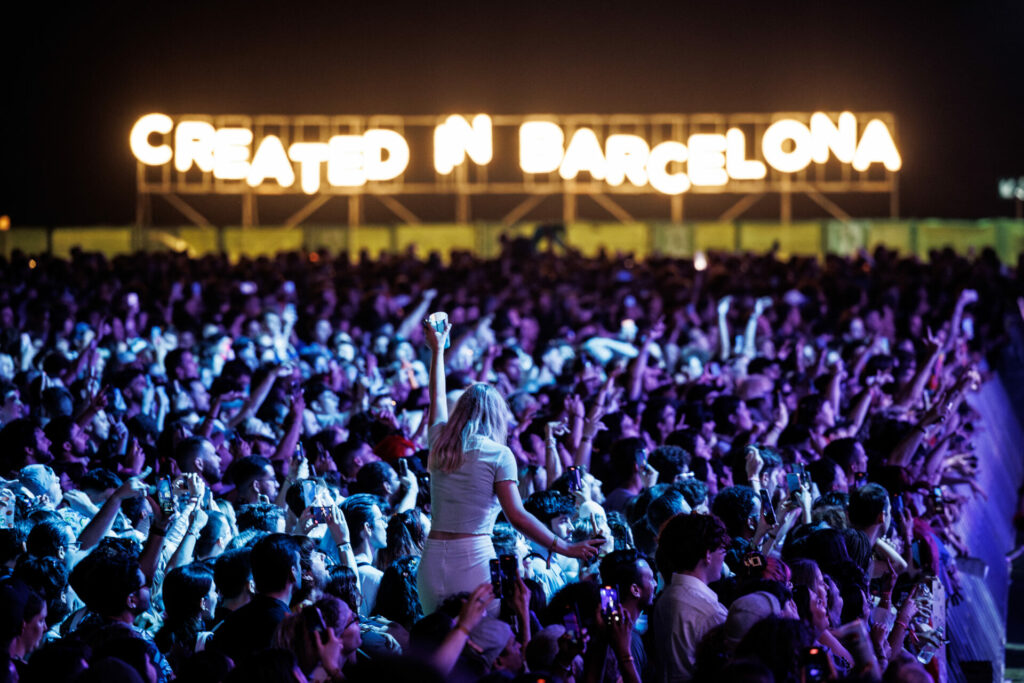
Regarded as the best curated of Europe’s major summer festivals, Primavera Sound wrapped up its 21st edition at Barcelona’s Parc del Fòrum on Sunday. This year invited headliners Blur, New Order, Depeche Mode, Kendrick Lamar, and Rosalía to perform on the city’s waterfront, while an array of rock and dance music talent played on the smaller stands, from rising British singer-songwriter Holly Humberstone to the hyped electronic duo Two Shell.
Last year, Primavera returned to Barcelona for its first outing following a two-year, pandemic-induced absence. It was a bumpy ride. Taking place across two weekends instead of one, attendees reported two-hour queues for bars, crowd bottlenecks after major performances caused by bizarre stage layouts and overcrowding, and last-minute artist cancellations. For what it’s worth, most of these problems were fixed in time for the festival’s second weekend, but it still left a lot of people nervous. Were these problems just a one-off, unique to the post-Covid conditions of the time? Would they be able to pull off this year without incident? The straightforward answer is ‘yes’.
New and improved Primavera Sound?
The Primavera team obviously learned from 2022’s festival, boosting the number of on-site essentials (bars, food stalls, toilets, water points) while reducing the overall capacity (achieved primarily by removing the entire Sant Adrià section, the area across the bridge where the main bulk of the afterhours electronic music programming is typically held). There was significantly less FOMO this time around too, as the festival was scaled back to being only one weekend long, with a twin event now taking place a week later in Madrid. These two almost identical lineups gave Primavera its theme for the year: ‘I’ll Be Your Mirror’, an homage to The Velvet Underground, whose John Cale performed at Parc del Fòrum’s Auditori Santander on Saturday. (The car company CUPRA, Primavera’s main sponsor, made this mirroring concept more literal with its Tavascan and Metahype launch.)
But there were some new issues that arose from these changes, too. The consequence of losing the Sant Adrià section meant that there was some sound bleed, like the 4×4 jackhammer techno that echoed across Rosalía’s headline set. And although the festival site felt less crowded than last year, it was a shame not to have the nightly pilgrimage of crossing the bridge to catch some late DJ sets after the bands had wrapped up – though the Boiler Room x CUPRA and Dice stages were far away enough to feel like their own distinct areas.
New Order and Blur: double whammy
Primavera’s Thursday night headliners kicked off with a double whammy of British music icons: New Order and Blur. New Order have not released an album since 2015, and their only new single since then was 2020’s ‘Be a Rebel’, so it was not surprising that their set leant on hits from their 80s heyday rather than recent material. Besides, the crowd seemed more up for hearing ‘Sub-Culture’, ‘True Faith’, ‘Bizarre Love Triangle’, and ‘Blue Monday’ (not to mention the version of ‘Love Will Tear Us Apart’ that they closed their set with) than they would have been with, say, an album cut from Get Ready. Their lean 12-song set felt perfectly primed for a day one act on the festival main stage.
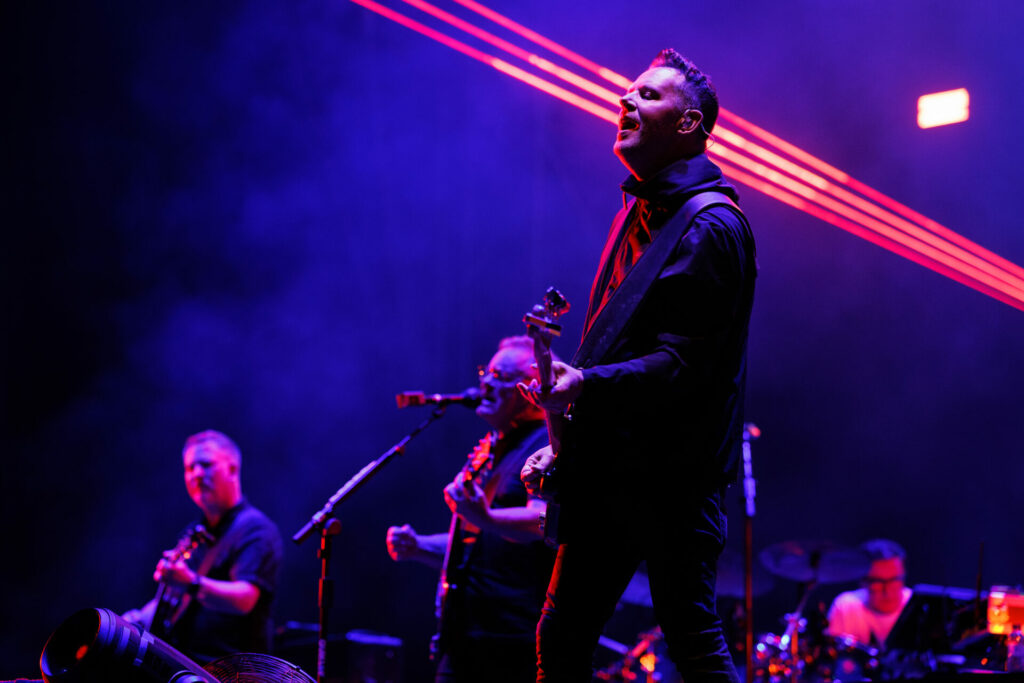
Blur seemed to take a very different tack, opening their first large-scale show since 2015 with an unreleased track from their upcoming album The Ballad of Darren. But that ended up being a fake-out: their next song was ‘There’s No Other Way’, followed by a crowd-friendly run (‘Popscene’ into ‘Tracy Jacks’ into ‘Beetlebum’), and the rest of the set was made up of singalong hits (‘Coffee & TV’, ‘Song 2’, ‘Parklife’, ‘Girls & Boys’), tearjerkers (‘To the End’, ‘Tender’) and a few serious deep cuts (I’ve listened to the bonus material on the Blur 21 boxset before, but I would not have recognised ‘Luminous’ – the b-side to the 1991 single ‘Bang’ that they played live for the first time in 24 years – without Googling it after I got home).
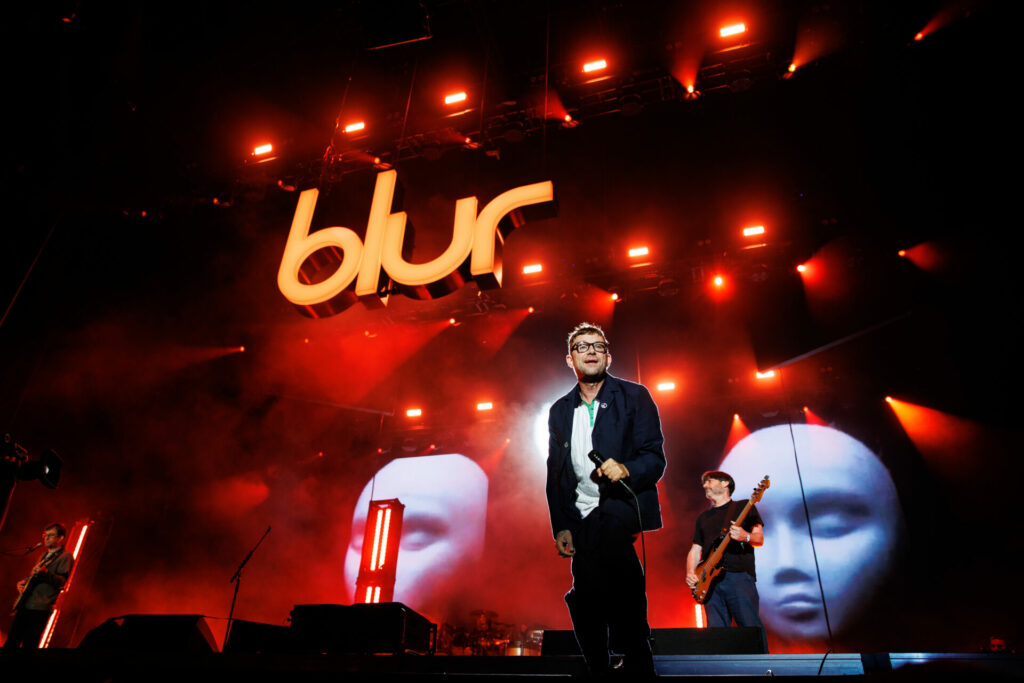
I was surprised by how tight the band were considering how little they’ve performed recently, and by how heavy they could still sound, mostly thanks to Dave Rowntree absolutely hammering the drum kit. Above all, they seemed genuinely happy to be playing together again: “I met Graham in school when I was 12,” Albarn said of his bandmate. “It’s so lovely to be back with my old friends again.”
Depeche Mode and Kendrick Lamar play for the die-hards
Following the previous day’s crowd-pleasing headliners, Friday night felt more for the die-hards. With a band like Depeche Mode, who have 15 studio albums to their name, there was always going to be a tricky balance between playing to true heads and festival goers who only recognise the biggest hits. Not that Depeche Mode needed to worry, as their obsessive fan base was out in full force, meaning there was a lot less pressure to please the casuals. Instead of scattering blockbuster hits throughout the set, they patiently built up through tracks like 2005’s ‘A Pain That I’m Used To’ (given a festival-sized update as they performed a version more indebted to the incredible Jacques Lu Cont remix than the original recording) before finally releasing the tension with ‘Enjoy the Silence’, ‘I Just Can’t Get Enough’, and ‘Personal Jesus’ at the end.
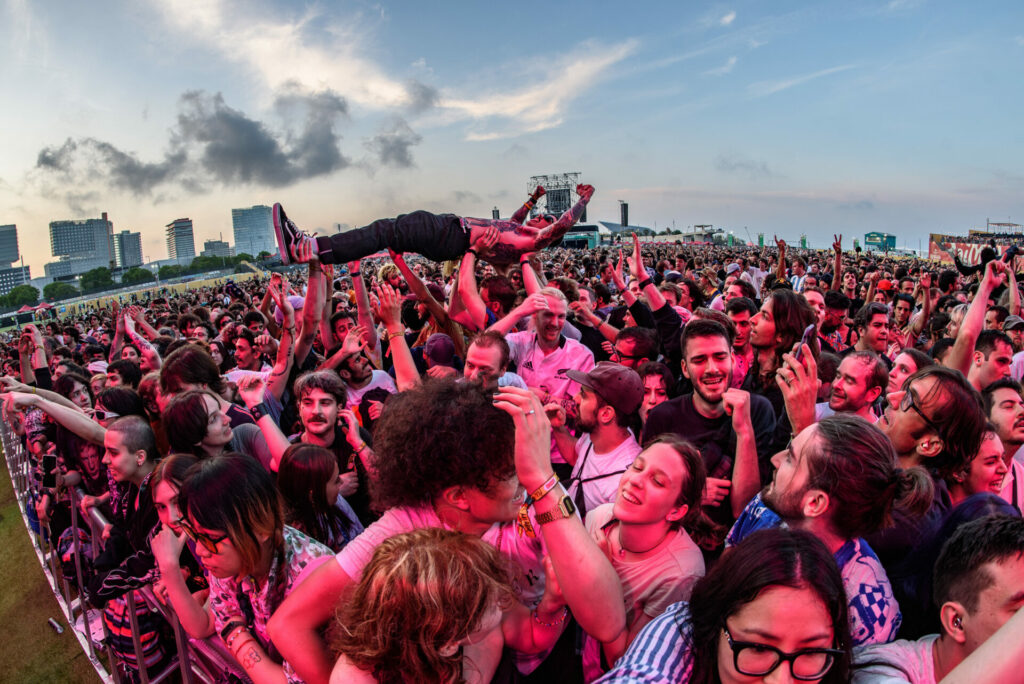
As Depeche Mode’s fans filtered out, Kendrick Lamar’s were flooding in. This was his first Primavera show since the Good Kid, M.A.A.D City era, and Lamar’s reputation as a live performer has only exploded since then, particularly with his expansive Mr. Morale & the Big Steppers tour and corresponding Glastonbury headline show last year. Tonight’s production was comparatively pared back, with the rapper performing in front of a series of painted murals that rotated between songs, and a fleet of backing dancers behind him – but even if the setup was less elaborate, the crowd was perhaps the most animated I saw all weekend, especially during a clattering rock version of ‘Backseat Freestyle’. A few hours earlier, Lamar’s cousin Baby Keem had played the same stage during the sunlight hours – a solid set from a talented rapper in his own right, but one that felt more like a teaser for his inevitable appearance during Lamar’s show, which came to as Keem was brought on-stage for ‘Vent’ and ‘Family Ties’ towards the close. This was the second time I’ve seen Lamar (the first was a DAMN. headline set at Norway’s Øya Festivalin 2018), and both times I’ve felt he was at a bit of a remove from the audience. He’s an excellent performer, but one who projects himself outwards to a crowd, rather than falling in sync with them.
Skillrex set the stage alight – quite literally
Friday’s programme also saw performances from Four Tet, Fred Again.., and Skrillex – all three playing separately rather than together, as they had done at Madison Square Garden and Coachella earlier this year to a lot of hype and headlines. I decided to check out Fred Again.. on the Estrella Damm stage following Kendrick Lamar’s set. Fred’s electronic music is earnest and emotional, and his performance seemed to have a lot of fans enraptured, but for me it felt too clean, too cloying, too filled with perfectly calibrated ‘moments’ and ‘feels’. I wanted to hear something with a bit more unpredictability, something that hits you in ways you don’t expect. (Skrillex, playing after Fred Again.., was certainly more unpredictable – his set was cut short when the stage caught on fire.)
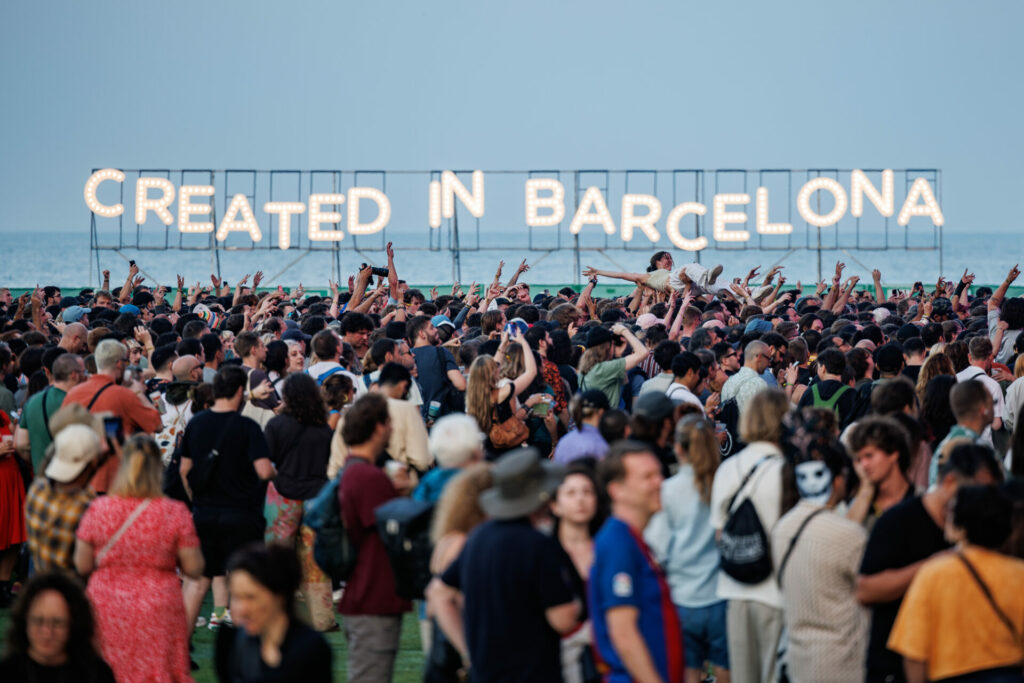
Rosalía’s set on Saturday came after perhaps the only major programming misstep of the festival – a DJ set by Calvin Harris. I have time for the bizarre production of an EDM main stage festival set, yet this didn’t really hit, either musically or on the level of pure spectacle. Rosalía, on the other hand, gave a standout set surrounded by backup dancers and tracked by vertical-mounted cameras that beamed her performance in close-up onto the side screens. The pure raunch of Motomami took the lead, with fun stage props (the salon chair for ‘Diablo’, the scooters for ‘Chicken Teriyaki’), but there were emotional moments too; Primavera is the singer’s hometown festival, and since her last appearance, she’s become an international star, which she reflected on during a Spanish-language speech to the crowd.
Diversity shown in disparate crowds
All three days had very different flavours of headliner, and all attracted very different audiences. Occasionally you’d be struck by the realisation that these disparate groups were all at the same festival together, despite the fact you rarely saw them cross paths. Only occasionally would this come to a head, like the Kelela fans disappointed when Italian pop-rockers Måneskin cut her set short, followed by the Death Grips fans booing when Måneskin subsequently overran. Or the influx of stragglers converging at 5am around the amphitheatre-like CUPRA stage, as Two Shell’s cybernetic rave became a closing show for the entire festival. It was only after I got home that I even remembered that bands like Sparks and Christine and the Queens had played, and I’d completely forgotten about them.
That sort of broad musical diversity translates into Primavera’s booking policy in other places. They’re already leading the pack when it comes to gender parity, with a roughly 50/50 split between female performers and male, but they’re also booking a number of international acts in their lineup too. East Asian pop music was surprisingly well represented, with the K-pop girl group Red Velvet bringing their refined pop songs and expert choreo to the relatively small Ron Brugal stage (their online and international audience is enormous, but that didn’t necessarily mean the stans all bought Primavera tickets), while Japanese idol group Perfume and pop singer Kyary Pamyu Pamyu played across the weekend too.
This sort of international approach reflects a festival where 52 per cent of the festival’s attendees come from abroad. That’s a figure that feels like it could fluctuate in the future – anecdotally, it felt like I knew far fewer people attending the festival this year than in the past; those that I spoke to were not put off by its ticket price (which still feels reasonable, given the quality of programming) but by a huge jump in the costs of flights and accommodation. Audiences will continue to fill out the festival when Primavera remains so strong on the talent side though. As Rema, the Benin City star and born showman said during his Thursday night set: “You’re not here for me, I’m here for you.”
